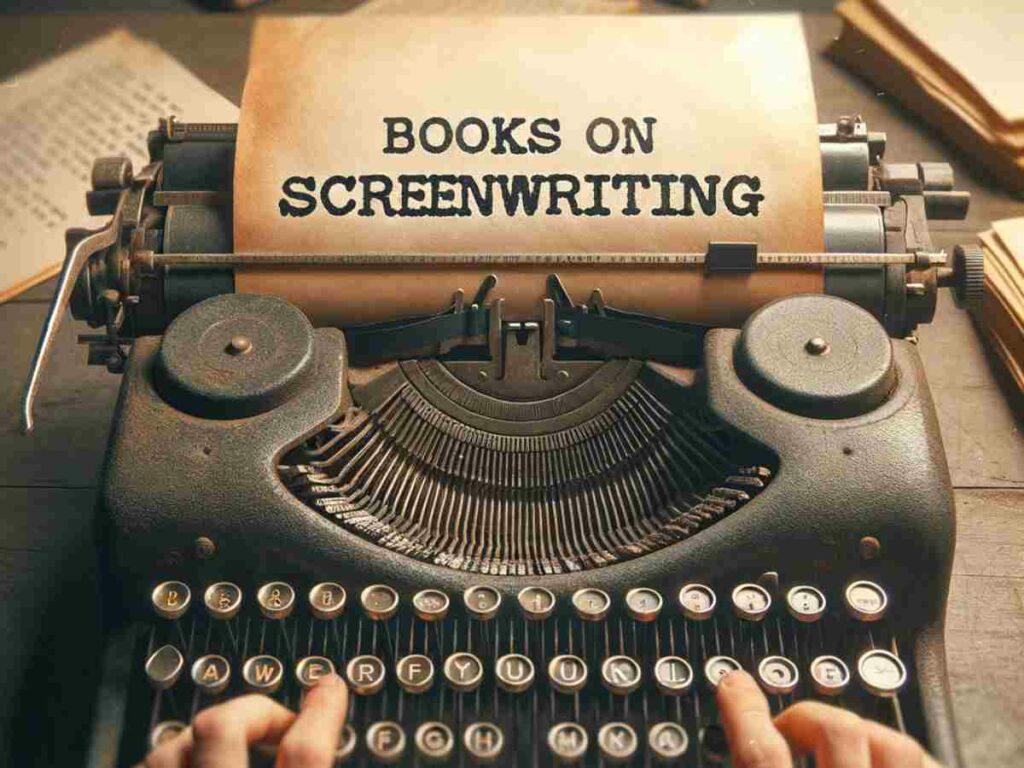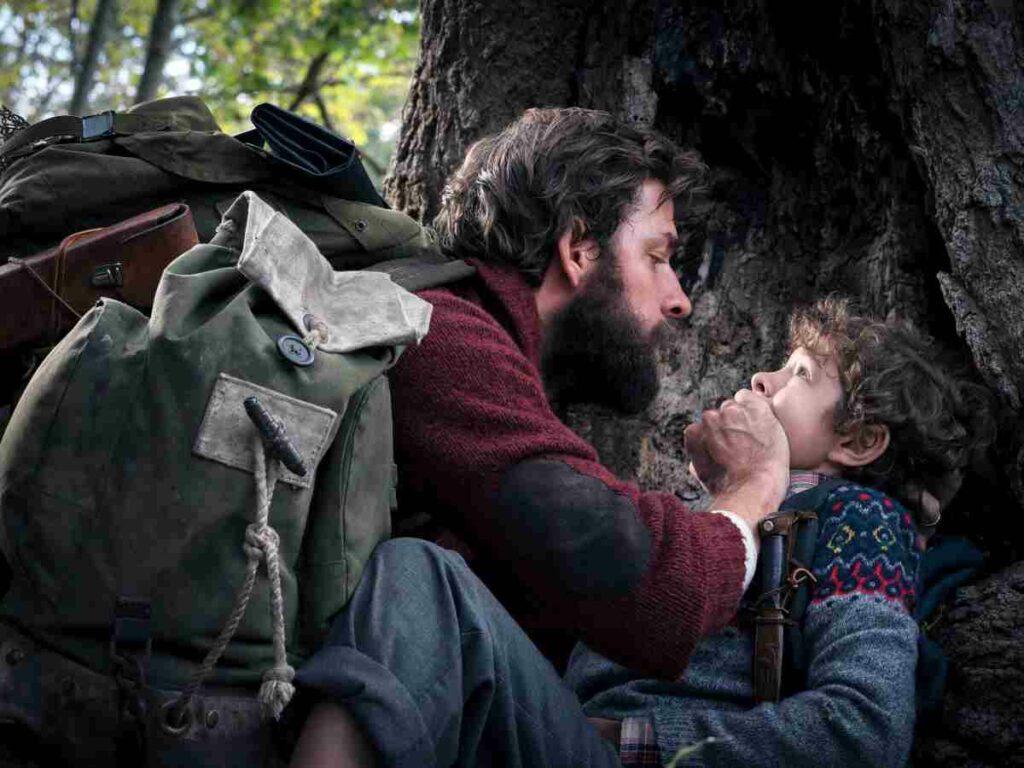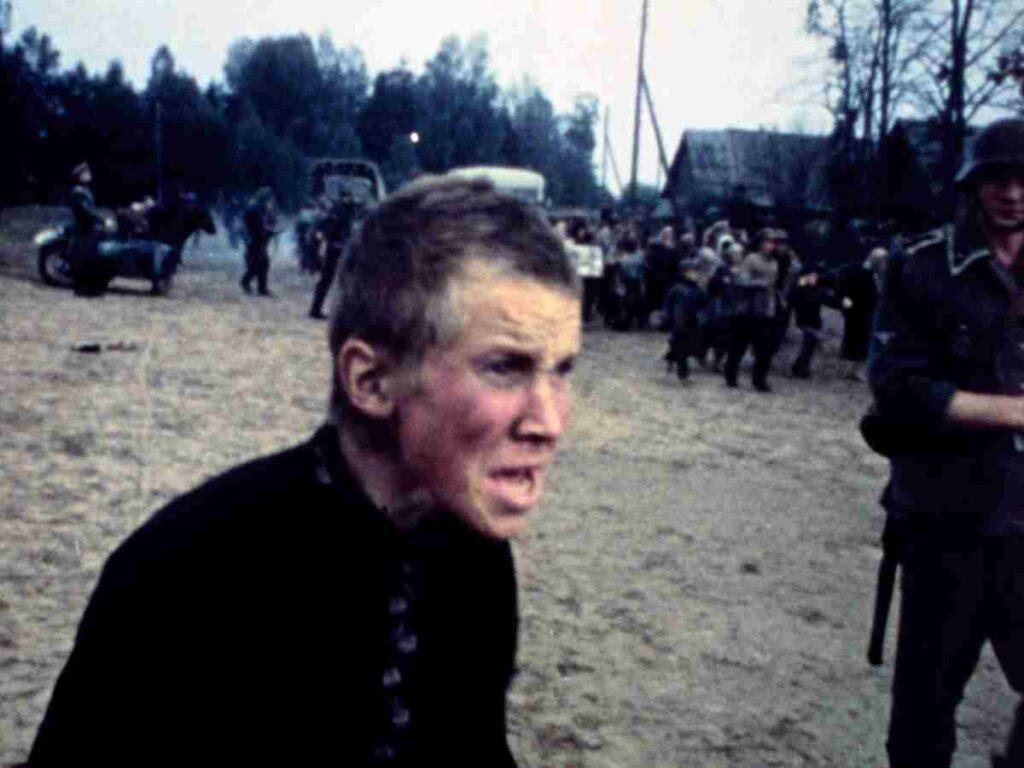From Screenplay by Syd Field to On Writing by Stephen King, these are the best screenwriting books to get you cracking on your writing journey.
So, you’ve got a story simmering in your mind, characters pacing around, and scenes playing out like a movie reel. But when you wield that pen to paper, your characters feel flat, the plot lacks punch, and you’re starting to wonder if you’ll ever make it in the cutthroat world of Hollywood. Well, we’ve all been there. At least, most of us who’re reading this right now. So, how do you steer yourself out of that creative rut? How do you translate that vivid imagination into a screenplay that leaps off the page and onto the silver screen?
Well, here are books to guide you through the murky waters of screenwriting with confidence and clarity. From crafting compelling characters to mastering the intricacies of dialogue to eventually selling that script, these screenwriting books cover it all. Written by seasoned screenwriters and industry pros, the books pack years of wisdom into easy-to-follow advice and practical tips.
Whether you’re a newcomer eager to learn the fundamentals or a seasoned pro seeking fresh inspiration, there’s something here for everyone. So grab a copy, roll up your sleeves, and get ready to bring your stories to life!
WATCH: How To Write GREAT Dialogue
Best Screenwriting Books
1. Save the Cat! – Blake Snyder

This book is practically a Bible for screenwriters. Snyder’s witty and accessible style makes it a delightful read, while his invaluable insights into the structure and mechanics of storytelling are both enlightening and practical. The book introduces the “Save the Cat” beat sheet, a tool that has become a staple in the industry for outlining a screenplay’s key beats.
The “Save the Cat” concept refers to a moment/scene early in the screenplay where the protagonist does something to win the audience’s sympathy or support. This moment is crucial for establishing a connection between the audience and the protagonist, making them invested in the character’s journey.
Snyder’s emphasis on character development and the importance of a well-crafted logline are particularly noteworthy.
Although some may argue that his approach is formulaic, there’s no denying the impact that Save the Cat! has had on the screenwriting world. Whether you’re a seasoned writer or just starting out, this book can help elevate your storytelling to the next level.
RELATED: 14 Best Film Internships [2024]
2. Story – Robert McKee

At its core, Story emphasizes the importance of understanding and respecting the craft of storytelling. He introduces the concept of the “archplot,” which he defines as the traditional narrative structure characterized by a protagonist’s pursuit of a goal in the face of obstacles.
Central to McKee’s philosophy is the idea of character development. He also delves into the mechanics of plot, discussing the significance of inciting incidents, turning points, and climactic moments. McKee also explores the concept of genre and how to subvert audience’s expectations by thoroughly understanding the expectations of the chosen genre. One of McKee’s key insights is the idea of “show, don’t tell.”
Robert McKee also addresses the practical considerations of the industry. He offers advice on navigating the complex world of agents, producers, and studio executives, emphasizing the importance of persistence, professionalism, and a willingness to collaborate.
Ultimately, Story is more than just a guide to writing; it’s a celebration of the art form itself.
3. The Anatomy of Story – John Truby

Truby’s approach to storytelling is like a surgical operation, dissecting the anatomy of a great screenplay and revealing the vital organs that make it tick. From creating multi-dimensional characters to constructing intricate plot webs, this book will help you create stories that stay with audiences long after the final fadeout.
Whether you’re writing a high-octane action thriller or a heartfelt drama, The Anatomy of Story will guide you through the creative process. Truby doesn’t advocate for formulaic approaches. Instead, he encourages writers to cultivate their unique voice while understanding timeless storytelling principles. The Anatomy of Story goes beyond surface-level techniques, delving into the psychology of storytelling and exploring the emotional core that drives compelling narratives. Truby’s insights challenge writers to dig deeper, to uncover the universal truths that lie at the heart of every memorable story.
4. Screenplay – Syd Field

Considered the godfather of modern screenwriting, Syd Field’s classic guide belongs on every aspiring screenwriter’s bookshelf. He explains complex concepts in a straightforward manner, making them accessible to writers of all levels. Central to his approach is the idea of the paradigm — a visual representation of the three-act structure. The paradigm consists of key plot points, such as the inciting incident, midpoint, and climax, which serve as anchor points for the narrative.
He emphasizes the importance of character development, the mechanics of crafting engaging dialogue and building tension through conflict and the power of subtext.
One of the most valuable aspects of Screenplay is Field’s emphasis on the rewriting process. Throughout the book, Field draws on examples from a diverse range of films to illustrate his points. Whether discussing the opening sequence of Star Wars or the climax of The Graduate, Field’s analyses are insightful and thought-provoking.
Screenplay addresses the business side of screenwriting, offering guidance on navigating the industry and pitching your script to agents and producers. Field shares anecdotes from his own experiences in Hollywood, shedding light on the realities of the film industry and offering practical advice for aspiring screenwriters. I
If there’s only one book you pick from this list, make it this one!
5. Writing Movies for Fun and Profit – Thomas Lennon and Robert Ben Garant
If you’re looking for a dose of humor alongside your screenwriting wisdom, look no further. Lennon and Garant’s irreverent yet insightful book offers practical advice on navigating the cutthroat world of Hollywood.
Packed with practical advice, insider tips, and laugh-out-loud anecdotes, this book offers aspiring screenwriters a behind-the-scenes look at the business side of the industry. Lennon and Garant pull no punches as they share their experiences navigating the ups and downs of Hollywood, offering invaluable insights that will help you avoid common pitfalls and maximize your chances of success.
Whether you’re a newbie screenwriter or a seasoned pro, Writing Movies for Fun and Profit is an indispensable resource for anyone looking to break into the world of screenwriting and make a name for themselves in Tinseltown.
6. On Writing – Stephen King

Although not specifically tailored for screenwriters, its insights transcend the boundaries of genre and medium, making it an invaluable resource for anyone passionate about storytelling. On Writing is a memoir, a manifesto, and a masterclass in storytelling all rolled into one. King’s passion for the written word is palpable on every page, serving as a source of inspiration for screenwriters who share his love for storytelling.
King’s emphasis on storytelling fundamentals, importance of developing well-rounded characters, insight into plot and structure can greatly benefit screenwriters. He stresses on revision and editing reminding screenwriters that the writing process is iterative and often requires multiple drafts to achieve perfection.
Beyond the practical advice, On Writing offers a glimpse into the psyche of the master storyteller. King’s candid reflections on his own insecurities and fears humanize the writing process, reassuring screenwriters that self-doubt is a natural part of the creative journey.
7. Adventures in the Screen Trade – William Goldman

One of the book’s most compelling aspects is Goldman’s unflinching honesty about the glamorous yet often tumultuous world of filmmaking. He doesn’t mince words in his portrayal of Hollywood as a place where creativity clashes with commerce, egos collide, and dreams are both made and shattered. Through his candid reflections on his own successes and failures, William Goldman offers invaluable insights into the highs and lows of a screenwriter’s journey.
From his experiences writing iconic films like Butch Cassidy… to his reflections on the art and business of screenwriting, Goldman’s book is both informative and engaging. But Adventures in the Screen Trade is more than just a manual for aspiring screenwriters; it is a love letter to the magic of cinema itself. Throughout the book, Goldman pays homage to the films and filmmakers that have inspired him.
A cautionary as well as a celebratory tale of cinema, this one’s a must read for anyone who has ever dared to dream of making it in Hollywood.
8. The Screenwriter’s Bible – David Trottier

Often hailed as ‘Dr. Format,’ Trottier demystifies the art and science of screenwriting. He gives us a comprehensive guide, covering everything from formatting a screenplay to developing characters and crafting a compelling story.
What’s brilliant about the book is its practicality. Trottier provides real-world examples and exercises that encourage readers to apply what they’ve learned immediately. The book is well-structured, making it easy to navigate through different sections, whether you’re looking for tips on dialogue, plot structure, or selling your script. It also includes practical tips on networking, finding representation, and marketing oneself as a screenwriter.
The Screenwriter’s Bible is not just a manual; it’s a mentor in print form. Trottier’s voice is encouraging and supportive. The book’s longevity and popularity among screenwriters are a testament to its effectiveness and relevance in the ever-evolving world of film and television.
9. Writing Screenplays That Sell – Michael Hauge

Want to write a screenplay that not only gets noticed but also gets sold? Seasoned script consultant Michael Hauge delivers practical advice with a refreshing clarity that makes the daunting task of crafting a compelling screenplay feel like a breeze. From character development to plot structure, he breaks down the essential elements of storytelling with wit and insight.
What sets this book apart is its emphasis on emotional resonance. Hauge brilliantly illustrates how tapping into the audience’s emotions is the key to a successful screenplay, whether you’re writing a rom-com or a thriller. His examples from iconic films add depth to his teachings, making it easy to grasp concepts like the “Identity vs. Essence” and the “Outer and Inner Journey.”
Overall, Writing Screenplays That Sell is a must-read for anyone serious about breaking into the competitive world of screenwriting. Hauge’s guidance is like having a seasoned mentor by your side, guiding you through every twist and turn of the storytelling process.
10. The Hero with a Thousand Faces – Joseph Campbell

Last but definitely not the least, Campbell’s exploration of the monomyth, or hero’s journey, offers a blueprint for storytelling that resonates across cultures and time. By dissecting the stages of the hero’s journey, from the call to adventure to the return home, Campbell provides a framework that has influenced countless films and TV shows. His insights into the psychological underpinnings of myth help screenwriters create characters and plots that tap into universal themes and emotions.
Campbell’s insightful analysis not only illuminates the structure of myths but also sheds light on the human experience, highlighting our shared quest for meaning and understanding.
His writing is both scholarly and accessible, making this book a fascinating read for anyone interested in mythology, storytelling, or psychology. Whether you’re a writer, a scholar, or simply a curious reader, The Hero with a Thousand Faces offers a rich and rewarding exploration of the stories that shape our world.
Wrapping Up
Those are some of the best screenwriting books every screenwriter should consider reading. Once you’ve finished with those, consider diving into The Writer’s Journey by Christopher Vogler and 150 Screenwriting Challenges by Eric Heisserer. However, while you can glean valuable advice and insights from these classic and modern screenwriting books or even enrol yourself in a film school, nothing surpasses the importance of actually reading and writing screenplays to sharpen your skills. Period!




